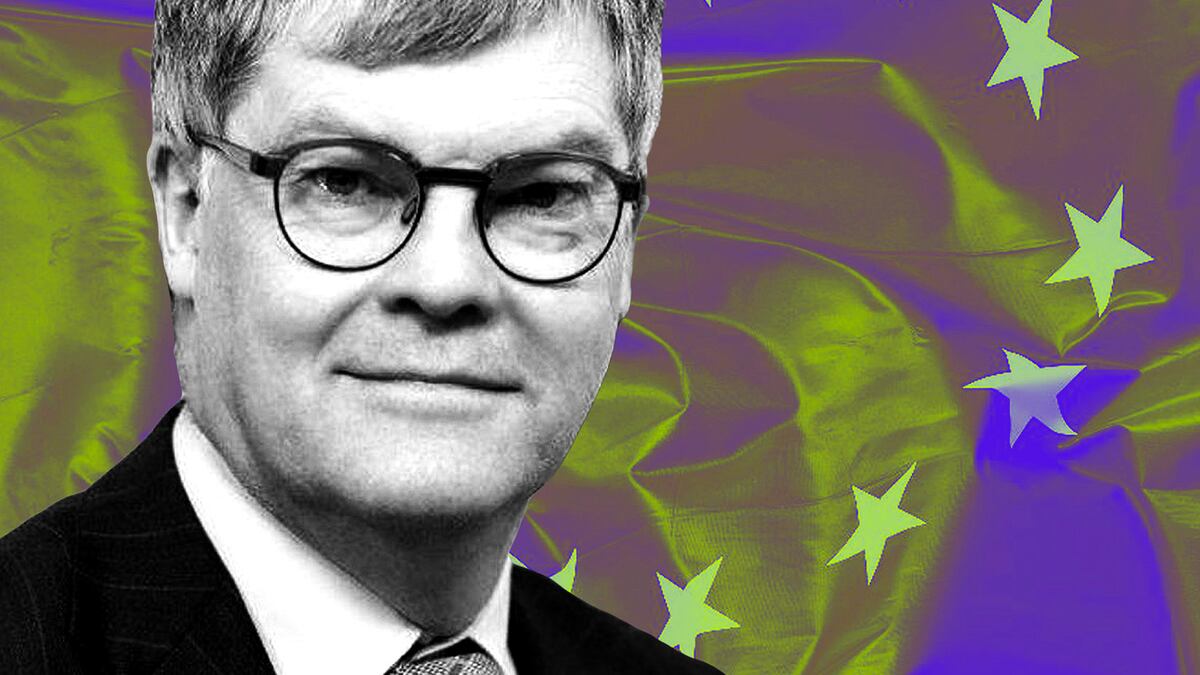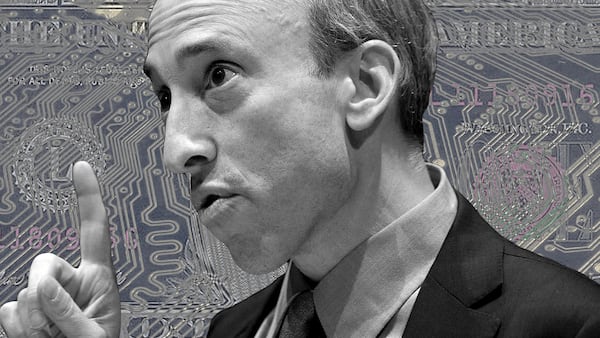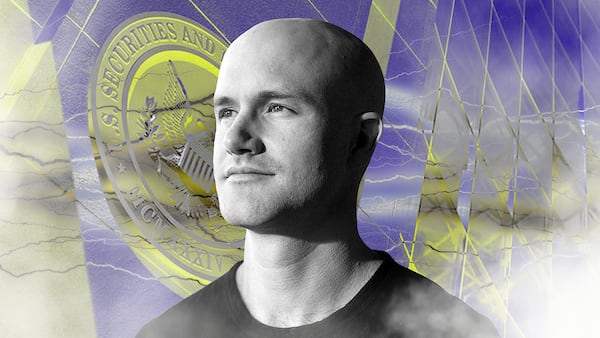- Pearse O’Donohue, a technology director with the European Commission, affirmed bloc will construct digital ledger to help people manage identity, records, and other public services.
- Nine nations led by Belgium are already committed to formation of new political body to manage buildout.
- O'Donohue vows EU will be pacesetter in public blockchain infrastructure, with industry help.
A senior European Union official said Wednesday that the bloc is committed to building a blockchain-based ledger that would help manage the lives of its 450 million inhabitants.
Yet even with policy support from Brussels, the buildout will largely rely on the blockchain industry itself to provide expertise and technological innovation, said Pearse O’Donohue, director for the future networks at the European Commission’s department for communications networks, content and technology.
“You really have to up your game,” O’Donoue said in a keynote address at a Brussels blockchain trade association summit taking place this week. “We have ambitions for the European blockchain sector to be in the lead.”
Blockchain push
The European Commission, the executive engine for the 27-nation bloc, is preparing to launch a blockchain consortium. This would be a political body responsible for constructing a digital ledger to host public services like digital identity, licences, and records.
“We’re now in the process of finalising an EU-wide blockchain service infrastructure which will be under the responsibility of public authorities as conveners that will bring together the blockchain communities,” O’Donohue said.
Even as regulators in the US crack down on crypto, the push by Brussels signals the race to build blockchain infrastructure may be heating up elsewhere. As DL News reported earlier this year, China is committed to rolling out its own system in developing economies in tandem with its Belt and Road Initiative.
The EU project is meant to launch in October. For now, there are nine member states led by Belgium, O’Donohue said.
New applications
“If we want to build new applications — like transforming a law into a smart contract, new applications which are not imaginable today — we need a common blockchain infrastructure,” Belgium’s state secretary for digitalisation, Mathieu Michel, said at the summit later on Wednesday.
Michel is planning to push the blockchain agenda forward during the nation’s six-month rotating presidency of the European Council in January, he told DL News in July.
“What we want to build is not just a technical project, but a political project,” Michel said.
Slovenia, Portugal, Croatia, Italy, Poland also committed to the blockchain consortium in July, Michel said at the time. The aim is to get all member states to join and operate at least one node on the blockchain.
“We’re not seeking to disrupt existing models with blockchain, just simply by eliminating intermediaries,” O’Donohue said.
The primary goal is supporting “the new applications, the new services that can benefit everybody.”
This consortium is not the only pro-innovation initiative from the commission. A paper on Europe’s metaverse strategy also illustrated a willingness to stay ahead of the game.
The commission has also supported a blockchain sandbox project to allow firms to test out blockchain solutions.
“We would certainly like to see certain existing business models disrupted, but that is not the point,” he O’Donohue said. “We’re not going to use blockchain as a battering ram.”
Inbar Preiss, DL News’ Brussels correspondent, covers crypto regulation and policy. Have a tip? Contact her at inbar@dlnews.com.
Updated to report comments made by Mathieu Michel at a conference in Brussels on September 27.
Corrected to report the European Commission has an executive role in the EU, not a legislative one.



